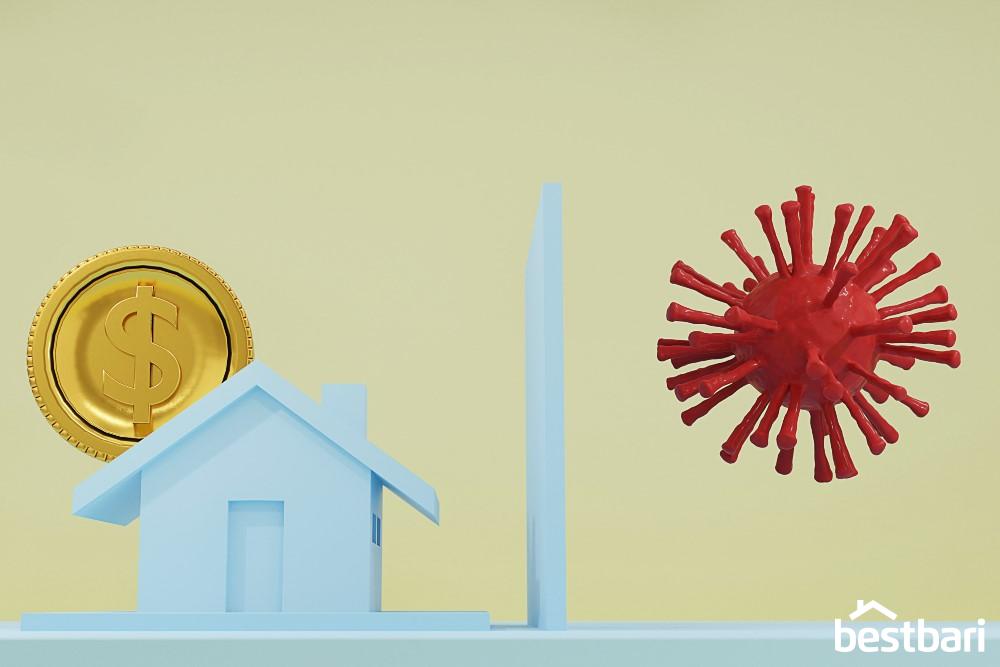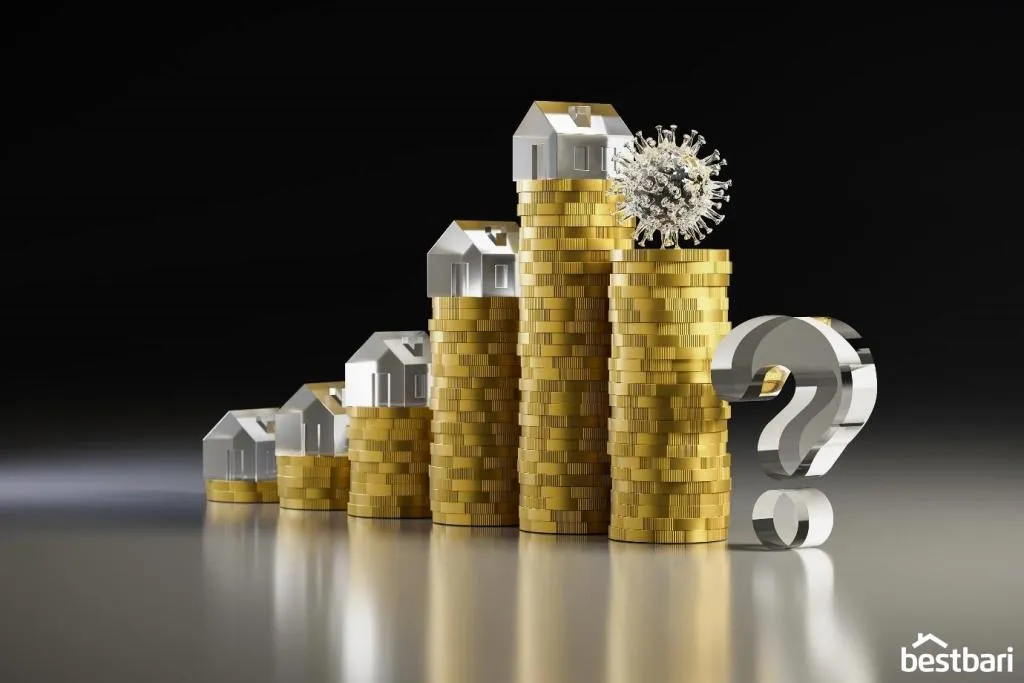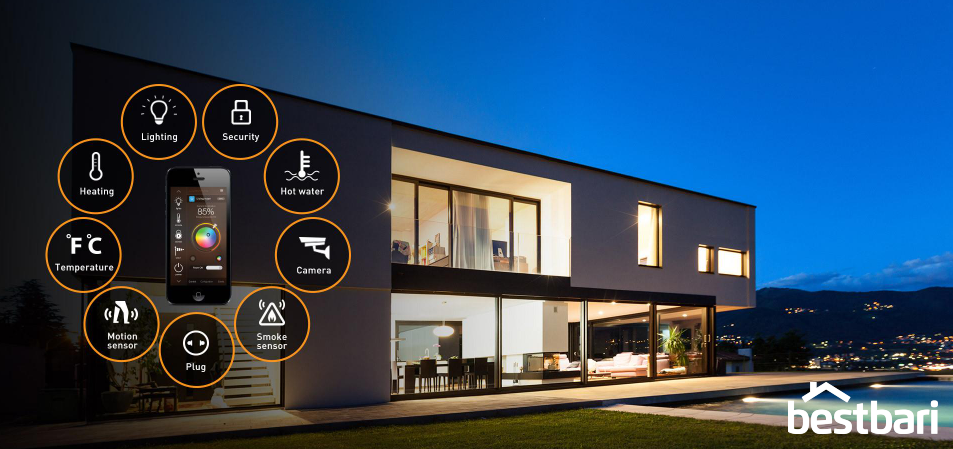
Reading time: 6 minutes, Category: Finance & Economics
Search the best flats for sale in Dhaka with BestBari, the leading digital real-estate company in Bangladesh.
The COVID-19 pandemic has reverberated through every aspect of our lives, leaving no industry untouched, including the property market.
Dhaka, the bustling capital of Bangladesh, has been significantly impacted by the pandemic-induced upheaval, with its property sector experiencing both challenges and opportunities. As the world grappled with lockdowns, travel restrictions, and economic uncertainty, the property market in Dhaka witnessed a paradigm shift, forcing stakeholders to adapt swiftly to new dynamics.
This article delves into the multifaceted impact of COVID-19 on Dhaka’s property market, exploring the disruptions, emerging trends, and potential long-term ramifications. From fluctuating property prices and altered demand patterns to the digital transformation of real estate transactions, we examine the key forces reshaping Dhaka’s property landscape and analyze the strategies adopted by industry players to navigate these unprecedented times.
In the article by BestBari, we will cover key issues and unravel the complex interplay between the pandemic and the property market, this article aims to provide a high level understanding of the challenges faced and the opportunities that have arisen in Dhaka’s ever-evolving real estate sector.
1. Initial Challenges:
When the pandemic hit Dhaka in early 2020, the property market experienced a significant slowdown due to various factors. Strict lockdown measures, travel restrictions, and economic uncertainties led to a decline in property transactions. Buyers and investors became cautious, delaying or cancelling property purchases, further dampening the market.
Construction projects, crucial for the growth of the sector, faced disruptions caused by supply chain issues and labor shortages. These challenges resulted in delays and increased costs, adding to the overall difficulties faced by the real estate industry. As the city grappled with the effects of the pandemic, the property market struggled to regain its previous momentum, with a long road to recovery ahead.
2. Shifting Demand Patterns:
COVID-19 has significantly impacted the property market in Dhaka, leading to a notable transformation in demand patterns.
As the pandemic accelerated the adoption of remote work and highlighted the importance of spacious living environments, there has been a noticeable surge in preference for suburban areas and properties that offer larger living spaces and extra rooms suitable for home offices.
Consequently, the demand for high-rise apartments in densely populated regions has experienced a decline, as individuals prioritize properties that provide open spaces, gardens, and recreational facilities, offering a sense of tranquility and respite from the constraints of city life. This shift in demand reflects the changing priorities and lifestyle preferences of potential buyers and renters in response to the ongoing effects of the COVID-19 pandemic.

3. Digital Transformation:
The pandemic accelerated digital transformation in Dhaka’s property market. Real estate agencies and developers swiftly adopted virtual solutions like property tours, online transactions, and remote consultations. These digital platforms revolutionized property search, transactions, and market efficiency.
Stakeholders catered to a wider audience, offering seamless experiences and accessible information. Virtual tours saved buyers time, while online transactions streamlined the process. Remote consultations allowed engagement without physical meetings. The digital revolution brought convenience, transparency, and efficiency to all involved.

4. Price Adjustments and Market Stabilization:
As the initial shock of the pandemic subsided, the property market in Dhaka witnessed significant price adjustments and a subsequent period of market stabilization. In response to the changing landscape, sellers and developers swiftly adapted their strategies, becoming increasingly flexible in their approach. They began offering enticing discounts, introducing flexible payment plans, and even providing additional incentives, all aimed at attracting potential buyers. This notable shift in the market dynamics has created a favorable environment for both prospective buyers and investors alike, allowing them to explore the market and capitalize on the opportunity to acquire properties at comparatively lower prices.
5. Government Initiatives and Policy Support:
The government of Bangladesh has implemented a range of initiatives and policy support to revitalize the property market and drive economic growth. These measures include a reduction in interest rates, relaxed loan requirements, and the introduction of stimulus packages, all of which have effectively encouraged property investments.
Additionally, the government’s unwavering commitment to infrastructure development and urban planning projects has further fuelled optimism and generated substantial growth prospects for the property market in Dhaka. With these strategic efforts in place, the government aims to foster a thriving real estate sector that contributes significantly to the overall economic development of the country.

6. Future Outlook for BD Properties:
Despite the initial challenges, the property market in Dhaka is gradually recovering and showing signs of resilience. The shifting demand patterns and digital transformation have created new opportunities for developers and investors to adapt to the changing needs of buyers.
The rise of affordable housing schemes, sustainable and eco-friendly projects, and mixed-use developments have the potential to reshape the landscape of the property market in Dhaka, ushering in a new era of growth and innovation. As the city continues to grow and urbanize, there is an increasing focus on addressing the housing needs of the population while promoting sustainable practices.
This has led to the emergence of various initiatives aimed at providing affordable housing options, reducing the carbon footprint of buildings, and creating vibrant, liveable communities. Additionally, the government’s efforts to improve infrastructure and streamline regulations have further bolstered investor confidence and attracted both domestic and international players to the market.

Conclusion
The COVID-19 pandemic has undoubtedly had a profound impact on the property market in Dhaka. However, this challenging period has also served as a catalyst for innovation and adaptation within the sector. Despite the initial setbacks, industry stakeholders have displayed remarkable resilience and have responded strategically to the evolving circumstances.
The changing patterns of demand, along with the accelerated process of digitalization, and the support provided by the government, have created a favourable environment for the property market in Dhaka to recover and embrace the new normal.
BestBari can help you take advantage of this as the city moves forward, it is of utmost importance for all stakeholders to prioritize sustainable and inclusive development practices. By doing so, they can ensure the long-term resilience and vibrancy of the property market in Dhaka.
This BD Property article is brought to you by BestBari, a innovative online real estate company in Bangladesh. Check out our other industry leading content to search for the best flat sales in Dhaka!












